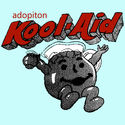-
About
- About Listly
- Community & Support
- Howto
- Chrome Extension
- Bookmarklet
- WordPress Plugin
- Listly Premium
- Privacy
- Terms
- DMCA Copyright
- © 2010-2025 Boomy Labs
 Laurie Garland
Laurie Garland
Listly by Laurie Garland
Adoptees smile but they must also grieve over the loss of true family which so often goes ignored. Despite all these traumas and issues, adoptees smile.
We smile to hide a world of hurt that neither we nor the rest of the world want to face. We smile because the world needs us to smile. They need to believe they are doing the right thing for us, to forget those silly “issues,” and call us “happy.” By smiling, we help them do that. Next time you encounter a “happy” and “grateful” adoptee who had “wonderful” adoptive parents and a “wonderful” life, look a little closer.
by Julie A. Rist
The child who is placed with adoptive parents at or soon after birth misses the mutual and deeply satisfying mother-child relationship, the roots of which lie in that deep area of the personality where the physiological and psychological are merged. Both for the child and for the natural mother, that period is part of a biological sequence, and it is to be doubted whether the relationship to it's post-partum mother, in it's subtler effects, can be replaced by even the best of substitute mothers.
~ by Florence Clothier MD., 1943
When the adoptee is separated from her mother, she undergoes extensive trauma. She will not remember this trauma, but it will stay in her subconsious as she lived it (Verrier, 1993)
by Vicki M. Running
Scientific research now reveals that as early as the second trimester, the human fetus is capable of auditory processing and in fact, is capable of processing rejection in utero. In addition to the rejection and abandonment felt by the newborn adoptee or any age adoptee for that matter, it must be recognized that the far greater trauma often times occurs in the way in which the mind and body system of the newborn is incapable of processing the loss of the biological figure. Far beyond any cognitive awareness, this experience is stored deep within the cells of the body, routinely leading to states of anxiety and depression for the adopted child later in life. - Bryan Post
Ann Fessler was nearly 56 when she first met her biological mother, who was 75. By then Fessler had already collected more than 100 oral histories for "The Girls Who Went Away." She knew that those girls - pregnant, frightened and coerced into surrendering their babies for adoption - never came back from the experience, not really.
Review by KATHRYN HARRISON
Attempted suicide is more common among adolescents who live with adoptive parents than among adolescents who live with biological parents.
Gail Slap, MD,
Elizabeth Goodman, MD,
Bin Huang, MS
I purposed the question"What Do You Hate About Adoption?" / Adoptee truths
Nancy Verrier is the author of the Primal Wound. The mother of an adopted daughter and a biological daughter, Verrier's groundbreaking book changed the way we think about the far-reaching consequences of adoption.

Today it's my delight to introduce Corie Skolnick, author of the book, Orfan. Many readers here will already know Corie and be familiar with her work as a licensed therapist, professor and author. In addition to Orfan, Corie was most recently a contributor to Adoption Reunion in the Social Media Age.
~ Adoptee Restoration
This post was supposed to be "10 Things I Wish I Knew Before I Was Touched By Adoption", but I can't use the feel good wording of "touched." I was not touched by adoption, it's more like torched, trampled, traumatized, terrorized, tortured and torn apart by adoption.
Claudia Corrigan D'Arcy
Children who are separated from their mothers early in life have different issues to deal with than those who are kept and cared for by their mothers. The relationship with the mother is the cornerstone for all future relationships. We are mammals and are meant to be close to our mothers in our early years. (Just watch Animal Planet and see how mothers and babies interact.)
All mammals know their own mothers through all their senses. Therefore when a baby is immediately taken from the bio mom and handed over to another mom, the baby is confused and disoriented. “Where is mom?” The new mom doesn’t pass the “sensory test.” She doesn’t sound right, or smell right, or feel right, or have the right resonance or energy. The infant becomes disregulated.
Nancy Verrier
There is extreme backlash against anything that can be labelled "anti-adoption," even when it is merely speaking FOR the equal rights of those adopted! After all, how can any sane sensible person say anything negative about the magical, airy-fairy, warm fuzzy, win-win process of an "unwanted,"abandoned or abused, "orphan" being "rescued" and "saved" by loving parents?
And yet, there is another side of adoption that is far less pretty and thus hidden away and unspoken: loss, separation, grief, feelings of rejection and unworthiness.
FAMILY PRESERVATION not Adoption Separation
Anyone who thinks open adoption is better than closed adoption because the mother knows where her child is ... has no idea about the nightmare experiences of many young mothers who believed, trusted what they were told about "doing what's best" for their babies and the promise of having some contact with them. Read their blogs, hear their voices. In truth, they were used and taken advantage of -- just as their counterparts of a generation ago.
Celeste Billhartz
A few months ago we heard from a young woman who had recently relinquished her child. She was full of pain when she wrote to us, five months after surrender of her daughter. Her "open" adoption turned into a nearly closed one after the adoptive parents of her baby read about her sorrow on her blog.
[Birth Mother] First Mother Forum
These are studies detailing the long-term consequences to natural mothers of surrendering a baby for adoption. This is information that is in standard and widely-known social work and psychology articles and research reports. Adoption "professionals" are familiar with these studies - the findings are common knowledge.
~ Origins Canada
The Psychology of Adoption Trauma and the Primal Wound In her preface to The Primal Wound, Nancy Newton Verrier states her naivetée when adopting her daughter. She was like most others; undermining and discounting the very child that she was promising to love and care for.
Post-adoption issues are similar to PTSD, in fact in come cases unaddressed post-adoption issues can turn into PTSD. Losing one’s heritage, mother, ethnicity and biology — it’s a loss, for some the way in which the adoption occurred is a traumatic event.
~ Laura Dennis
The Darker Side of the Adoption Story This month's theme has to do with the effects of adoption on the adoptee and the adoption issues that most people in the adoption community don't want to talk about.
Depression, Anxiety, Self-esteem issues, Reactive attachment disorder (RAD), Post traumatic stress disorder (PTSD), Attention deficit hyperactivity disorder (ADHD), Identity development, General feelings of grief, loss, and rejection
Jane Ballback
Many who suffer from complex PTSD go years, sometimes decades, without understanding the cause of their symptoms—from sensitivity to sounds, mood dysregulation and chronic physical pain. Making the connection between their symptoms and the lived-experience of chronic stress and trauma is highly significant in the healing process.
I do not think making open adoptions legally enforceable is the answer even though some people believe it is. I think the answer is education. We need to educate mothers that relinquishing their child through unnecessary adoption is not the answer. That all promises are based on the need to separate their child from them for financial gain or to fulfill the desires of people who care only about what is good for them. It is all about the mother producing a marketable product for the consumer. Once that is understood and we get rid of all the rainbows and unicorns, we are left with the cold hard facts of unnecessary adoption.
In short, I do not know a single mother who willingly or easily gave up her baby.
When a mother loses a child in any circumstance other than adoption, she is supported by family, friends and community. She is allowed to grieve openly — she is allowed to grieve.
By Claire McGettrick
